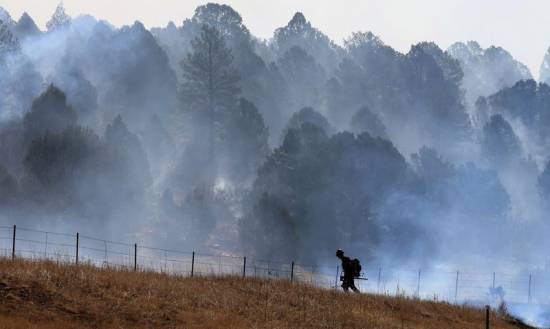Miguel Gandert doesn’t know that his family’s 19th century log home is a . has been burnt by new Mexico wildfires, but they fear the flames could destroy the Indo-Hispano mountain culture much older than the United States.
wildfire is the biggest now United States of america And the Sangre de Cristo threatens a string of villages high up in the mountains where Gandert can trace roots european And Mexican settlers as well as Native Americans. The fire has burnt down several houses in the district. mora canyons, and violent winds on Sunday threatened adobe mud-brick farm houses, churches, chapels and water mills in the early 19th century.
“It is almost a form of cultural genocide that is ongoing and fire is the enemy,” said Gandert, a retired university student. new Mexico Professor who spent his childhood summers fishing and helping out on his family’s farm in the village of Mora. Some residents have been in the family new Mexico from the late 17th century, and over half mora Police said the county, population 4,500, stopped to guard homes.
Holman and . working class families in communities of cleveland Gabriel Melendez, born in Mora, said he used his own bulldozers and machinery to put out the fire, along with firefighters. They are motivated by a love of “querencia” or place, based on a religious sensibility for the land for which they pray. Catholic Melendez said, the churches and chapels known as “mordas”.
“You’re losing an inheritance, you’re losing the value of these homes,” said 69-year-old retired Melendez. American Study professor whose nephew stayed at Holman. “People will rebuild, and they will work to rebuild the fabric of this torn culture, but it’s a huge challenge.” Patricia Marie Perea said those who have been evacuated are devastated, whose relatives are gone San Miguel County to Albuquerque.
“My family has three hundred years of pedigree,” said Perea, an assistant professor in the Chicana and Chicano studies at the University of New Mexico. “It all makes it difficult, if not impossible, to quit.”/agencies


